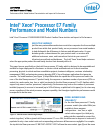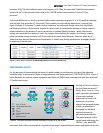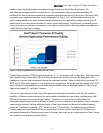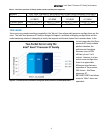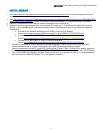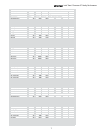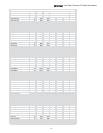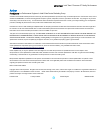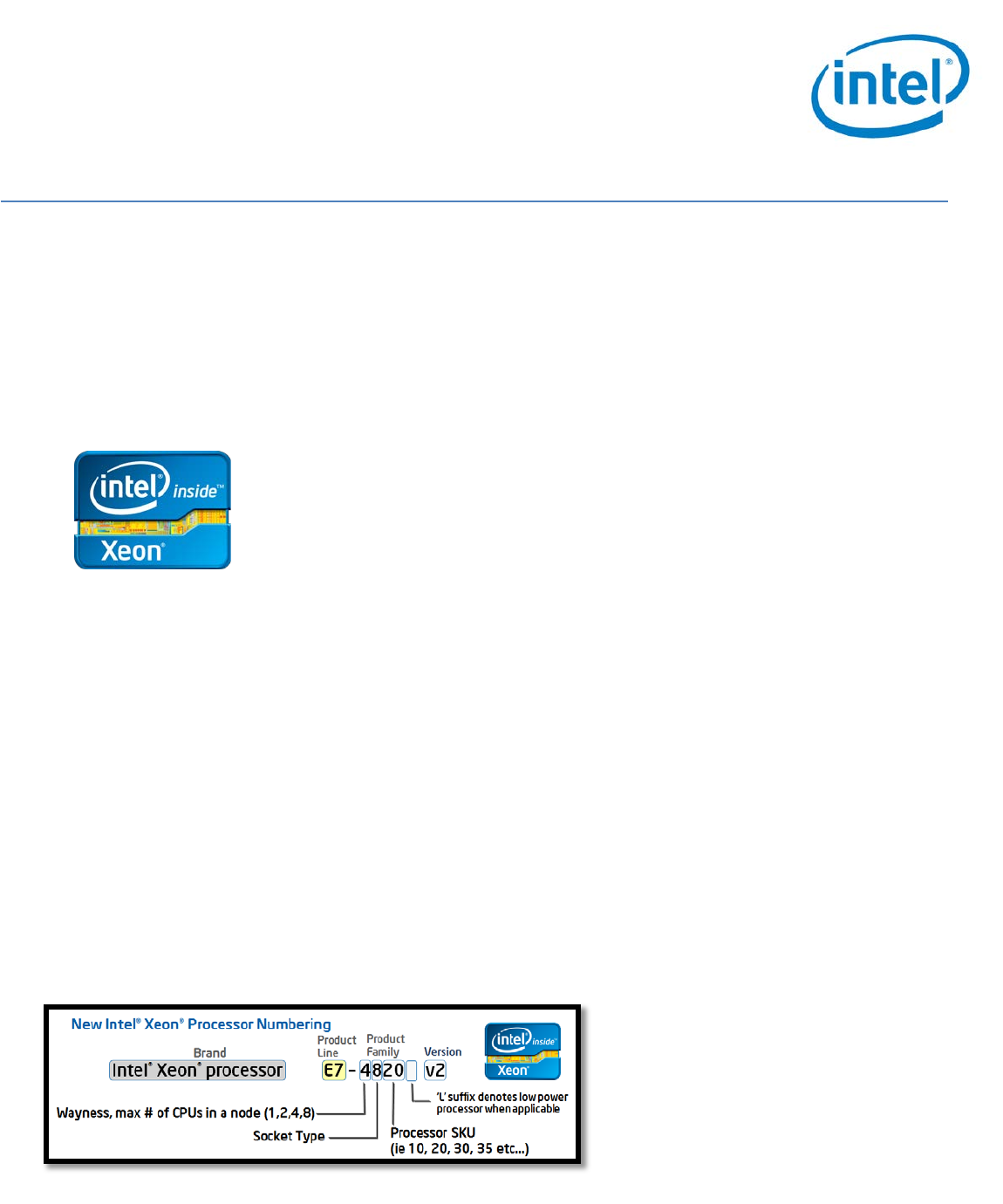
WHITE
PAPER
Intel® Xeon® Processor E7 Family
Performance Brief: Model Number Characteristics and Impact to Performance
Intel® Xeon® Processor E7 Family
Performance and Model Numbers
Intel® Xeon® Processor E7-8800/4800/2800 Product Families Characteristics and Impact to Performance
EXECUTIVE SUMMARY
Just like many automobile manufacturers and other companies that have multiple
product lines within their product family, server processors have model numbers
to help distinguish the differences in features and delineate value. As your
business grows, so does demand for your products and / or services with
additional customers, users, and transactions that strain your current IT
infrastructure and back-end databases. The Intel® Xeon® brand helps customers
select the appropriate product line and family stack as their demand justifies it
1
.
This paper focuses specifically on the Intel Xeon processor E7 family which is designed to be expandable and
scalable for larger deployments of business- or mission-critical workloads such as on-line transaction
processing, physical-to-virtual machine consolidation projects, business intelligence, customer relationship
management (CRM), and enterprise resource planning (ERP) / line-of-business applications that generate
revenue. The model numbers (see Figure 1) help differentiate the capabilities of the processors and in the
case of the Intel Xeon processor E7 product family, the wayness or maximum number of processors (CPUs or
sockets) in a node can be two, four, or eight (contrasted to the Intel Xeon processor E3 or E5 families, which
support only one or two/four processors, respectively). Performance may scale as the number of processors
installed (wayness) in a server is increased (up to 94% efficiency as published in this paper); but in a two-way
server, regardless of the actual processor wayness capability, the throughput application performance would
be expected to be the same.
MODEL NUMBERS AND
SCALABILITY
For the Intel Xeon processor E7 family,
processor models (also called SKUs) are
available in three wayness
configurations – two, four, or eight
socket native support (no third party
node controller required to connect the
sockets together). Within a given Intel Xeon processor E7-xxxx SKU, the difference in wayness is irrelevant if
populated in only a two-socket node and corresponding performance differences are negligible. For example,
the top-bin Intel Xeon processor E7-8870/E7-4870/E7-2870 all have the same socket type (8) and the same
Figure 1 - 2012 Processor Numbering Example



